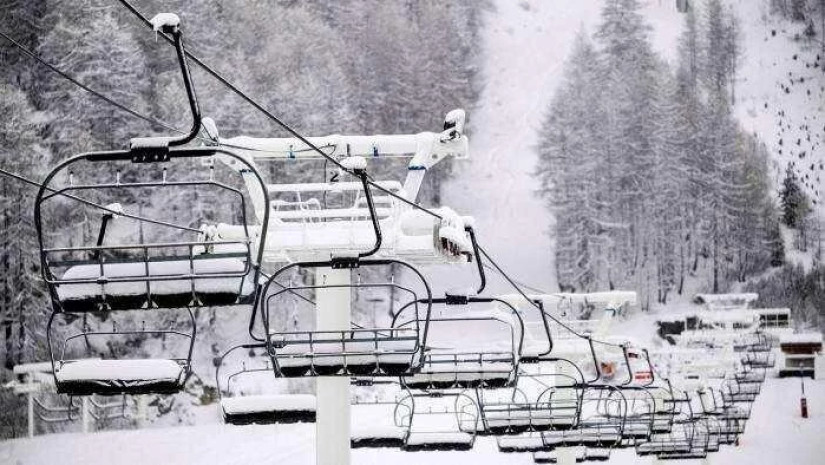According to the Financial Times, Several operators collapse as travel restrictions take heavy toll on season’s bookings.
Gérard Brudi, who rents two apartments to winter workers in the popular French ski resort of Val Thorens, has not had a single booking this year.
Despite snow falling and sunny weather, the ski lifts are closed. The travel reps that would normally host guests have little more to do than check empty chalets for freezing pipes.
Val Thorens can host about 50,000 visitors a week at peak but there are currently just a few thousand scattered weekend guests.
“We are absolutely, as we French say, in incertitude,” said Mr Brudi. “People don’t rent flats or hotels at a high price just for sniffing the good fresh air. If I cannot ski, I am not interested.”
The European Alps make up more than a third of the world’s 2,084 ski resorts, according to data from industry analyst, Laurent Vanat. Its ski season typically produces €28bn in revenues, also about a third of the global total and almost 7 per cent of the overall value of the EU’s tourism market.
But this season will generate nothing close to that. After Covid-19 cut short the busy Easter period during its initial spread through Europe in March — leaving operators and airlines scrambling to repatriate holidaymakers — a third wave looks set to wipe out bookings over Christmas and New Year.
Many resorts across Austria and Italy are closed, while France has said all ski lifts will be shut until January 7. Switzerland has cautiously opened but is under pressure from its European neighbours to close again and with quarantine restrictions in place, international travel is all but banned.
With the average price of a ski holiday from the UK to the Alps costing around £1,200, consumers are wary of committing as infection rates creep up across the continent and authorities change restrictions.
Crystal Ski Holidays, the biggest company in the industry, said bookings were “well over” 50 per cent down on last year’s levels. The operator usually sends about 170,000 tourists to the Alps each season but has halved its capacity from January onwards and cut the number of resorts it feeds by more than a fifth.
Its nearest rival, Hotelplan, which is less than half Crystal Ski’s size, cancelled all bookings for December and January, as well as its annual Santa programme to Lapland.
“The rest of the season is on a knife edge”, said Joe Ponte who became chief executive of Hotelplan in October. “As an operator we just have to understand the myriad different circumstances and communicate that to customers.”
Owen Chapman, head of member services at Ski Club of Great Britain (SCGB), a tour operator and the UK’s oldest snow sports association, said bookings were 70 per cent below last year. Because hotels were contracted and costs committed in advance, the company has had to cancel holidays six to 10 weeks ahead or face steep losses.
The closures and cancellations have left the ski holiday sector facing significant losses.
Crystal Ski is owned by the travel group, Tui, which this month reported a record annual loss of €3.2bn.
Crystal Ski and Hotelplan both said they had negotiated costs and capacity reductions with hoteliers to minimise the financial damage.
But having lost a quarter of last season’s revenues after the onset of coronavirus, several smaller operators have already gone bankrupt. The 23-year-old UK-based chalet expert, Alpine Elements, was the latest to collapse into administration this month.
Chris Hamblin, managing director of The Boutique Chalet Company, said that with 14 properties to let and next to no bookings, he was unsure how his company would adapt to the changing restrictions. “It’s so difficult to forward forecast at the moment.”











